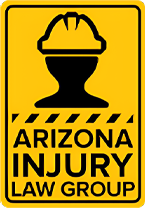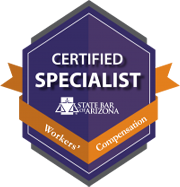Is PTSD Ever Covered by Workers’ Compensation?

Although so-called “battle fatigue” or “shell shock” has been recognized for many years as a common effect of exposure to combat conditions, the affliction now known as Post Traumatic Stress Disorder (PTSD) was not formally recognized as a legitimate diagnosis by the American Psychiatric Association until 1980. Since then, we have come to recognize that PTSD can result from witnessing events completely removed from the battlefield. When such events occur in the workplace, workers compensation benefits for PTSD sufferers may be available.
The circumstances under which PTSD (or, for that matter, “mental” injuries generally) qualifies as a compensable injury vary greatly from state to state. As a general rule, if the traumatic event was accompanied by an otherwise covered physical injury, the costs of treatment of PTSD symptoms associated with that injury will be covered. Thus, a worker who is physically injured in a work-related accident that also causes the traumatic death of a co-worker should receive treatment for both his physical and mental injuries
When the alleged injury is purely mental, however, the standard for approval can be more restrictive. In Nevada, for example, a stress-related condition may be covered only if it was caused by “extreme stress in time of danger”. As such, a Nevada first responder who suffers PTSD as a result of seeing a particularly gruesome accident could presumably only recover if he or she faced a dangerous situation at the time.
Under Arizona law, the triggering event must be “unexpected, unusual, and/or extraordinary.” While this standard is arguably somewhat more liberal than Nevada’s, it is still a difficult test to satisfy.
AN UPHILL BATTLE
Employees who file a workers’ compensation claim based on work-related PTSD without evidence of an accompanying physical injury can expect the claim to be treated skeptically and closely scrutinized. Even having a formal PTSD diagnosis and documented symptoms (for example, irrational fear, sleep disturbances, nightmares, flashbacks and mood swings) from a psychiatrist or psychologist is not a guarantee of approval, especially if the claimant has a prior history of psychological issues. That being said, the best way to document the severity of your PTSD symptoms remains a demonstrated history of ongoing treatment by a qualified psychiatrist or psychologist.
DELAYED REACTIONS
Adding to the challenges faced by a PTSD claimant is the fact that PTSD symptoms may not appear until months or in some cases years after the traumatic event. The passage of time can make it more challenging to connect PTSD symptoms to the witnessed event. This is one reason why it is so important for a claimant to seek treatment as soon as symptoms become apparent. Statements from non-medical associates such as friends, family members, and co-workers regarding a claimant’s behavior may also be of value.
ACCOMMODATING PTSD SUFFERERS
Because PTSD is a recognized psychological disorder, it is considered a “disability” for purposes of the Americans With Disabilities Act (ADA). The ADA employs a balancing act that requires employers to make “reasonable accommodations” that will allow persons with disabilities to perform their job duties while not imposing an “undue hardship” on the employer. W
What constitutes a “reasonable” accommodation for a PTSD sufferer is of course in the eye of the beholder, but here are a few actions that can have a positive impact while having a modest budget impact and a minimally disruptive effect on practical operations:
- Scheduling flexibility
- Provision of noise-canceling headphones or similar devices
- Exceptions to policies limiting personal telephone conversations during business hours
- Accommodating the presence of legitimate assistance animals (failure to do so may in itself be an ADA violation)
- Adjustment of lighting or other aspects of the PTSD sufferer’s work environment
Get Help Today
Call Immediately For A Free, No Obligation Consultation And Let Us Help You Put Your Life Back On Track. Let Us Help You
Regain Normalcy And Stability Again. We Want To Help You Get The Benefits You Need And Deserve!


